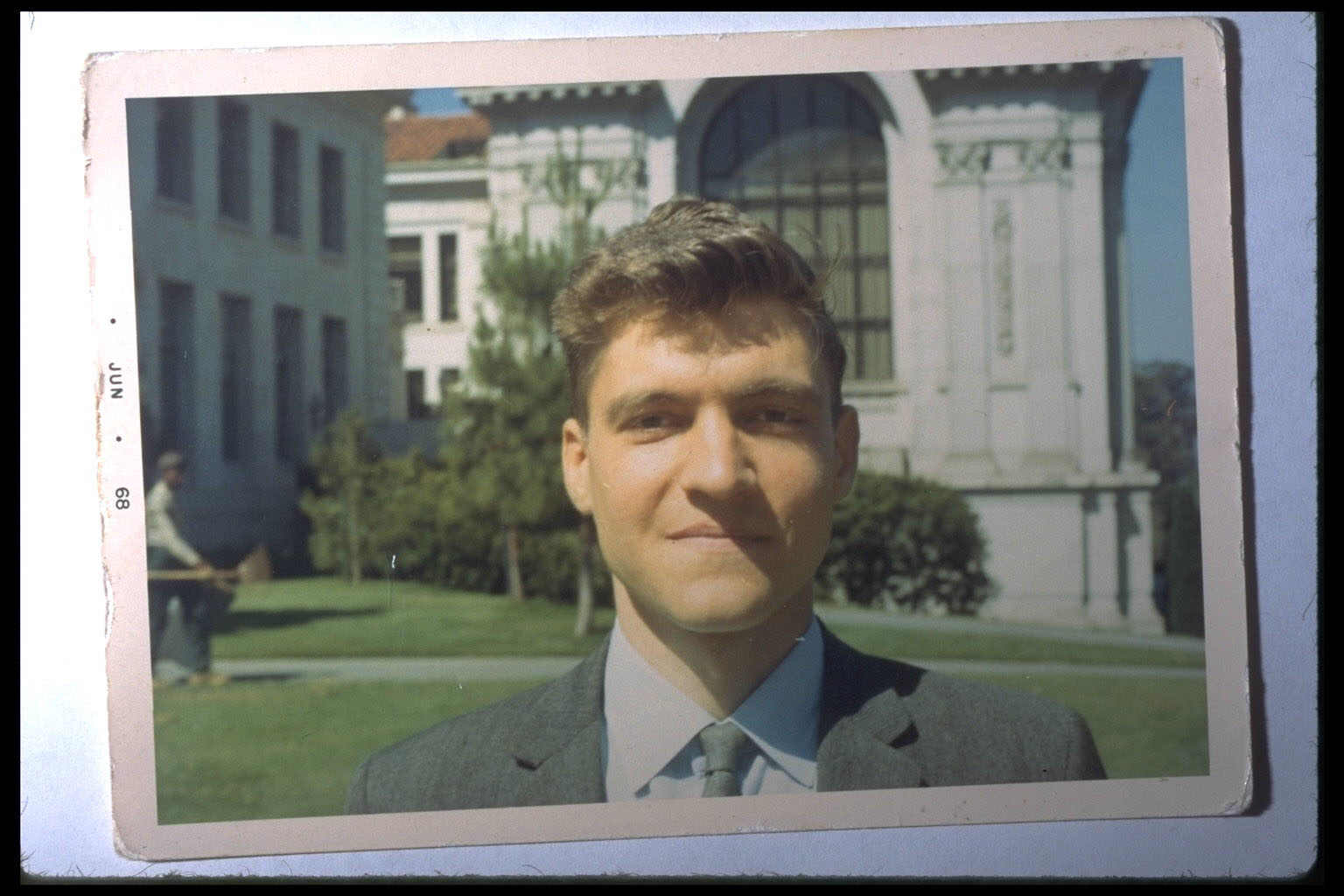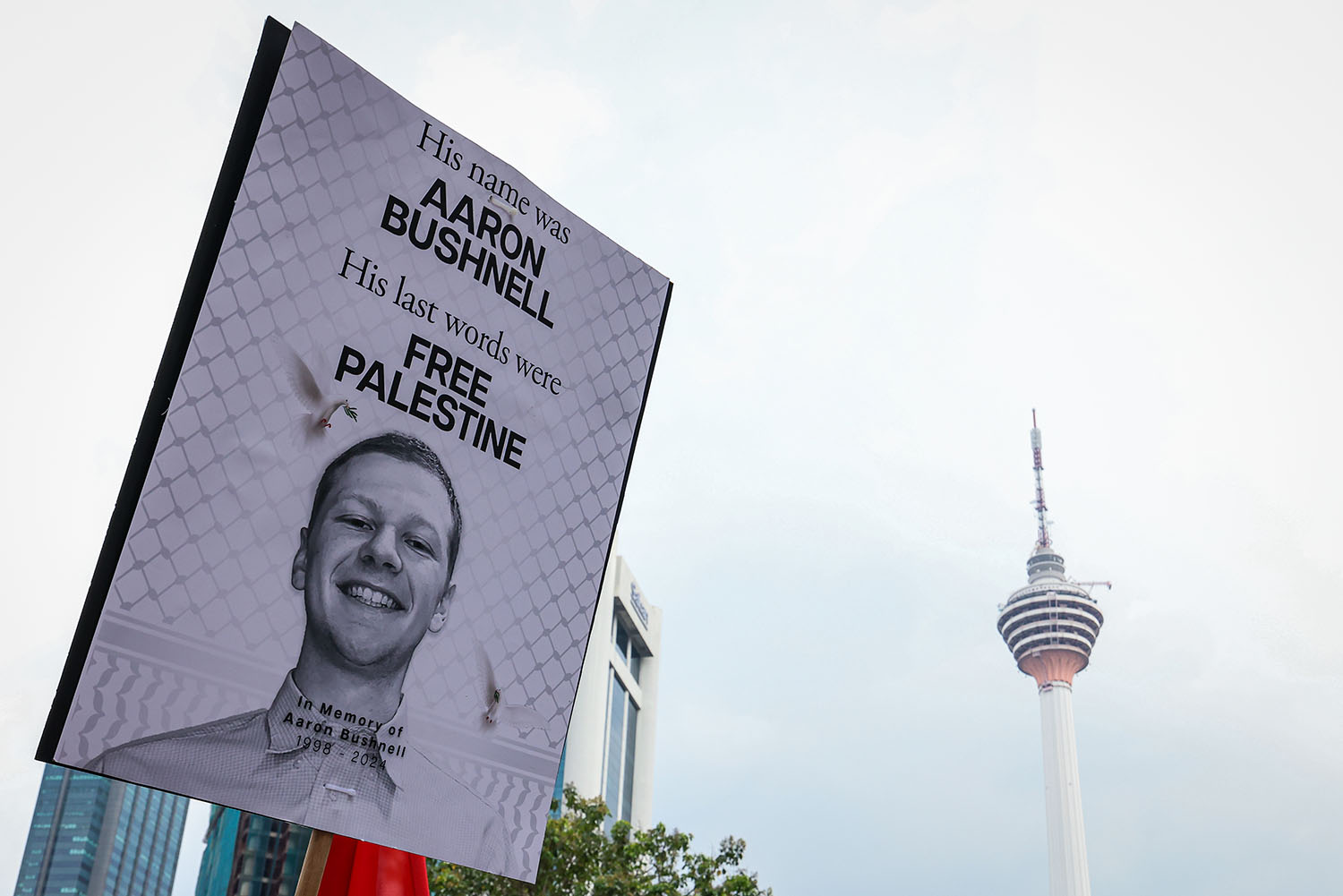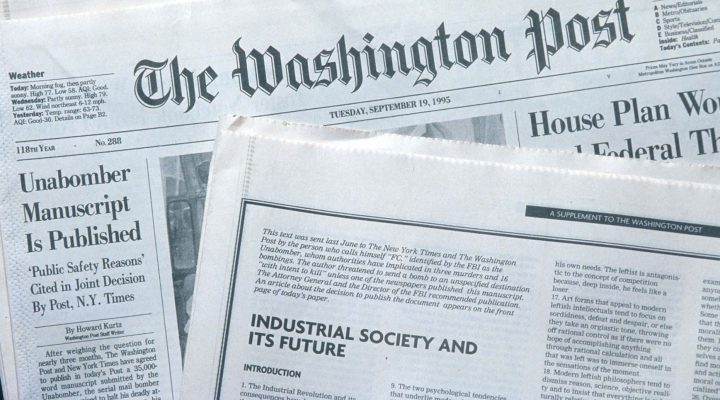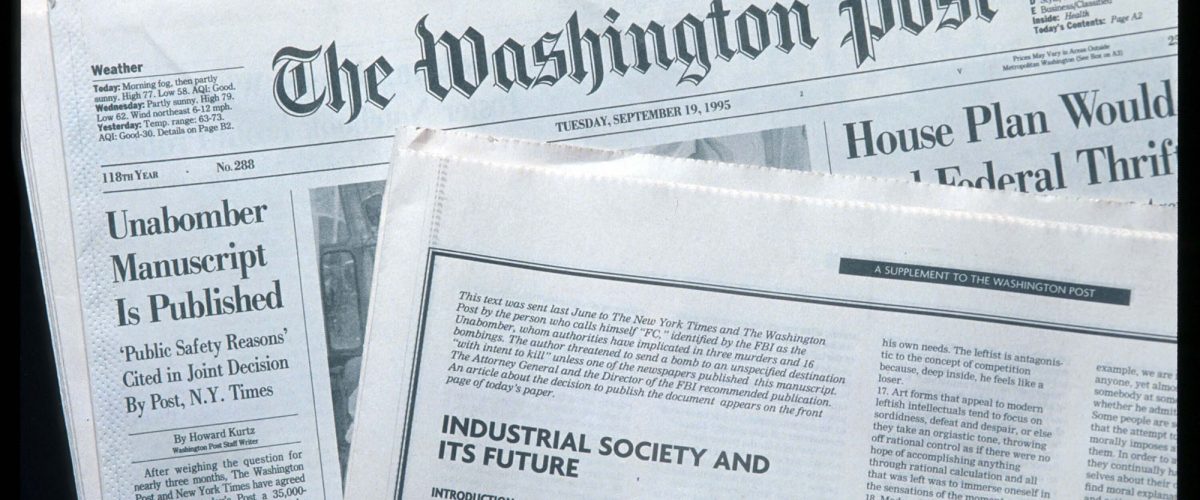Our words don’t matter anymore. There once was a time when they did.
Media reach was limited by its medium, be that print or electronic, but with the advent of social media and the omnipresent internet, something changed. Anybody’s thoughts or opinions can be broadcast at any time. Commentary, both informed and uninformed, can be broadcast about current events and tragedies in real time. Well-researched articles and remarks are often buried by big budgets, clickbait and fake news.

Kaleb Graves
In the face of this perspective swamp, how does one ensure their opinions get aired widely? Instead of waiting or paying for the algorithm to make your content viral, a new strategy has taken form: violence. When you decide to kill some people, you ensure many others listen.
This type of terrorism is different from previous forms. Acts of terror certainly express a point of view, like Salafi jihadism or Irish separatism. However, acts of terror once were largely intended to provoke action. Hijacking a plane, bombing a base or taking hostages would pressure policy makers to take certain actions like the release of prisoners or withdrawal of troops.
This was the modus operandi of Black September, FLQ, Weather Underground, the IRA, Al-Qaeda, and other famous terror groups in the 20th century and early 21st century. Their terror attacks were actually intended to change material conditions.
Manifestos
Beginning with the Unabomber in 1995, something changed. Ted Kaczynski, nicknamed the Unabomber while his identity was unknown, shipped or placed 16 bombs across the USA that killed three people and injured 23. Had his partially failed bombing of AA Flight 444 been successful, he would have killed 78 more.
Throughout this bombing campaign, Kaczynski made only one demand. He wanted his manifesto to be published in a national newspaper.[1] A former mathematics professor at UC Berkeley, he wanted the bombings to draw attention to his philosophy. Specifically, he raged against industrial technological society building off the ideas of Christian philosopher Jacques Ellul.
Kaczynski modeled a new paradigm for terrorism. Instead of demanding material change, lone wolves or pairs commit violence with maximum damage so their ideological opinions will be heard. With enough blood, violence can break through the internet algorithm and cluttered 24-hour news cycle, and their words will be heard.

Archival photo of American mathematician and professor Ted Kaczynski, later a domestic terrorist known as the Unibomber, as he poses outdoors at the University of California, Berkeley, June 1968. (Photo by Sygma/Sygma via Getty Images)
According to theologian Jurgen Moltmann in his latest book, The Spirit of Hope, this is a shift from the democratic Marketplace of Ideas to the Marketplace of Violence.
The rise of manifestos and livestreamed shootings is one facet of selling one’s ideology on the Marketplace of Violence. These forms of terror media are particularly on the rise among white supremacists.[2]
Norwegian white supremacist Anders Breivik, who killed 77 people and injured more than 300 others in 2011, left a manifesto more than 1,500 pages long. The perpetrator of the 2014 Isla Vista massacre wrote a manifesto more than 100,000 words long. The terrorists involved in the 2022 Bratislava shooting, 2022 Buffalo shooting, 2019 Christchurch shooting, 2019 El Paso shooting, 2019 Halle shooting, and dozens of other acts of terror published their own manifestos as well.
Unlike earlier news coverage of shootings as “senseless tragedies,” the first question many ask now is “what was their motive?” The obsession with manifestos after violence has led political commentators to twist events to fit this new paradigm.
Suicide notes are wrongly labeled “manifestos.”[3] Conspiratorial right-wing groups try to craft narratives about “transgender terrorists” infesting our nation.[4] This shows how smoothly our shift into the Marketplace of Violence has been, changing the way we respond to unspeakable mass murder.
We are witnessing these attacks and immediately seeking to know what it means for the political realm and our place in it. Was the attacker one of ours? One of our opponents? Or someone else entirely who is not part of our left-right binary?

A place card of Aaron Bushnell seen during a rally on March 2, 2024, in Kuala Lumpur, Malaysia. In solidarity with Palestine amidst reports of more than 100 killed and about 750 wounded, a mega rally organized by the Palestine Solidarity Secretariat marched from the Tabung Haji building, passing the United States Embassy, Kuala Lumpur City Center, to Independence Square before concluding at Padang Merbok, as Israeli forces fired at Palestinians while collecting food aid in the southwest of Gaza City, highlighting the besieged enclave’s unprecedented hunger crisis. (Photo by Annice Lyn/Getty Images)
Front page news
Since the Oct. 7 attack on Israel, the Marketplace of Violence has become bullish. Indeed, Hamas’ indefensible and abhorrent attack on Israel did not come with a clear motive. While commentators have theorized about motivations, like disrupting the normalization of Saudi Arabia-Israel ties, the attack seemed closer to the new paradigm of terrorism. Even Hamas’ longstanding requirements for hostage releases do not substantially change anything about Gazan material conditions before the attack. They demand an Israeli Defense Force withdrawal, a return to the way things were before Oct. 7.
In a world dominated by crises and causes, militants wanted the humanitarian crisis of Gaza to be front page news. It was the heavily armed parallel to the non-violent 2018 March of Return protests at which Israel shot more than 6,000 civilians, including hundreds of children, journalists, medics and disabled protesters.[5]
In these very different efforts, Gazans simply wanted the world to hear something: “Remember the Palestinian cause! We are still here!”
Since that attack, ideological violence has increased. International stabbings and shootings of Jews and Palestinians have taken center stage as people use bloodshed to show their loyalty to one side or the other.
“Bushnell could have posted on social media or attended protests all day every day, but it never could match the audience he gained for the Palestinian cause by broadcasting his torturous death for public view.”
Self-directed violence also has increased to bring attention to one’s cause. The self-immolation of Aaron Bushnell at the Israeli embassy while he screamed “Free Palestine” haunts my mind. Bushnell could have posted on social media or attended protests all day every day, but it never could match the audience he gained for the Palestinian cause by broadcasting his torturous death for public view.
We are consumers
Months before the 2024 election in this current climate, Christians must face this reality. Whether we like it or not, we are now consumers in this Marketplace of Violence. It is on our newsfeeds and TV screens. We cannot look away, deciding that we’re “just not political” and living in willful ignorance. We cannot allow ourselves to be reactionaries, tossed to and fro by the whims of the news cycle and any zealot with a gun. We certainly cannot sell in the Marketplace of Violence ourselves, as if the gospel of Christ will be heard better after the sound of our own gunfire.
This leaves Christians with only one good option. We must publicly recommit ourselves to gospel values: love, hope, justice, courage, peace, wisdom, perseverance, compassion, joy and forgiveness.
These virtues and the actions that uphold them are antithetical to the Marketplace of Violence and undermine its very existence. By modeling them in principled political organizing, justice activism, our church communities and in our everyday lives, we testify to a better way.
We testify to the way of the risen Christ, the Prince of Peace. We testify in the midst of gunfire, not over the top of it with our own. We cry out: “The kingdom of God is within you, and so a better world is possible!”
Kaleb Graves is a CBF minister and educator living in North Carolina. He earned a master of divinity degree from Duke Divinity School in 2023 and is currently pursuing a master of arts degree in psychology.
NOTES
[1] https://www.washingtonpost.com/wp-srv/national/longterm/unabomber/manifesto.text.htm
[2] https://www.icct.nl/sites/default/files/import/publication/Jaocb-Ware-Terrorist-Manifestos2.pdf
[3] https://www.ohchr.org/en/hr-bodies/hrc/co-iopt/report2018-opt
[4] https://gnet-research.org/2023/06/19/break-the-chain-manifestos-lone-wolf-terrorism-and-the-nashville-shooting/
[5] https://www.independent.co.uk/news/world/americas/us-politics/twitter-ban-marjorie-taylor-greene-b2309784.html


